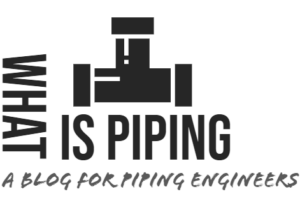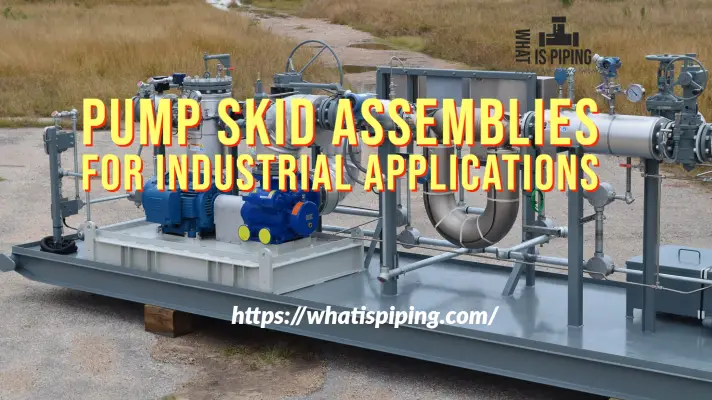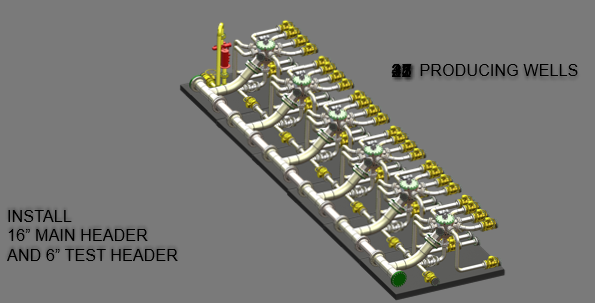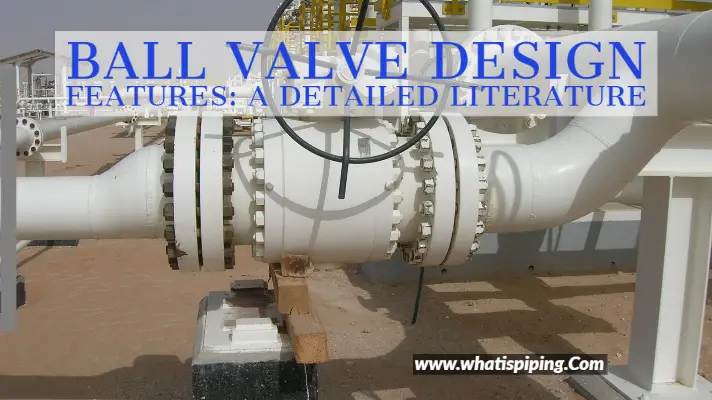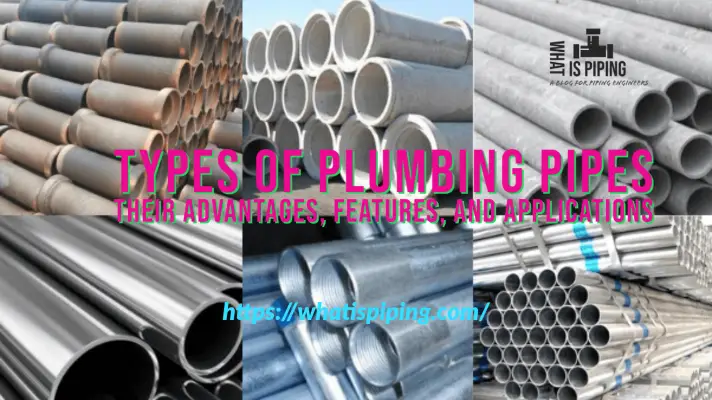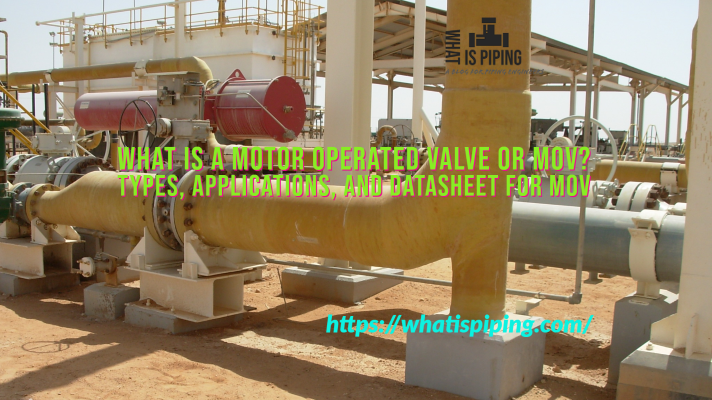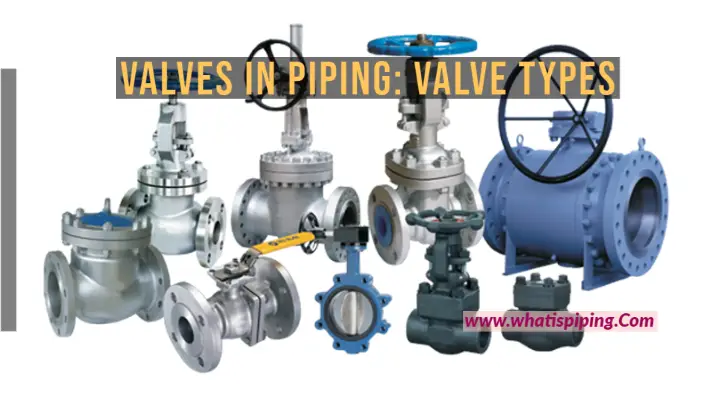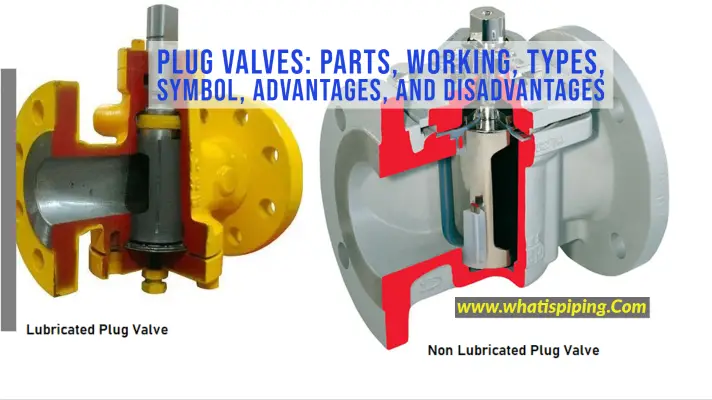A multiport selector valve (MSV) is a type of rotary valve that is designed to divert the flow of a fluid or gas into different lines or process streams. It has multiple ports that can be selectively opened or closed to direct the fluid or gas flow to different outlets.
MSVs are commonly used in industrial applications where multiple process streams need to be controlled or where different fluids or gases need to be mixed or separated. For example, MSVs are used in the oil and gas industry to control the flow of oil, gas, and water in a production well, or in chemical processing plants to mix different chemicals or to direct process streams to different equipment.
MSVs are available in a variety of designs, including two-way, three-way, and four-way configurations, depending on the number of ports required. They are typically operated manually or by using automated control systems, such as pneumatic or electric actuators.
Multiport Selector Valve Functions
Overall, MSVs are an important component of process control systems and are widely used in various industries to control the flow of fluids or gases in a safe and efficient manner.
Multiport selector valves (MSVs) serve several important functions in the oil and gas industry, including:
- Flow Control: MSVs are used to control the flow of fluids and gases in production facilities and pipeline systems. By selecting different flow paths and configurations, MSVs can direct the flow of fluids and gases to specific destinations, optimize the production efficiency, and minimize downtime.
- Pressure Control: MSVs can also be used to control pressure in production facilities and pipeline systems. By adjusting the flow paths and configurations, MSVs can help maintain consistent pressure levels and prevent overpressure or underpressure conditions.
- Fluid and Gas Sampling: MSVs can be equipped with sampling ports and connections for fluid and gas sampling. These sampling ports can be used to collect samples for analysis and monitoring of process conditions.
- Product Separation: MSVs can be used to separate different products in production facilities, such as oil and gas. By directing the flow of fluids and gases through different paths, MSVs can separate different products and prevent contamination.
- Maintenance: MSVs can be used to isolate different sections of the pipeline or production facility for maintenance and repair. By directing the flow of fluids and gases through different paths, MSVs can isolate specific sections of the system and allow for maintenance and repair without affecting the entire system.
Overall, MSVs play a critical role in flow control and process optimization in the oil and gas industry, providing flexible and precise control of fluid and gas flow in production facilities and pipeline systems.
Applications of MSVs in the Oil and Gas Industry
Multiport selector valves (MSVs) are widely used in the oil and gas industry for various applications, including:
- Well Testing: MSVs are used in well testing operations to divert the flow of oil, gas, and water from the wellbore to different process streams or equipment. This allows operators to measure the production rates of each fluid and optimize the well production.
- Production Separation: MSVs are used to separate oil, gas, and water during the production process. The valve is used to direct the flow of each fluid to different processing equipment, such as separators, heaters, and pumps.
- Gas Lift Systems: MSVs are used in gas lift systems to control the injection of gas into the wellbore. The valve is used to divert the flow of gas to different injection points in the wellbore to optimize the lifting process.
- Pipeline Pigging: MSVs are used in pipeline pigging operations to control the flow of cleaning pigs through the pipeline. The valve is used to divert the flow of the cleaning fluid and the pig to different sections of the pipeline.
- Chemical Injection: MSVs are used in chemical injection systems to control the flow of chemicals into the production stream. The valve is used to divert the flow of the chemical to different injection points in the production stream.
Overall, MSVs play a critical role in the oil and gas industry by providing efficient and reliable control of fluid flow in various applications. Fig. 1 Below shows a typical MSV Skid.
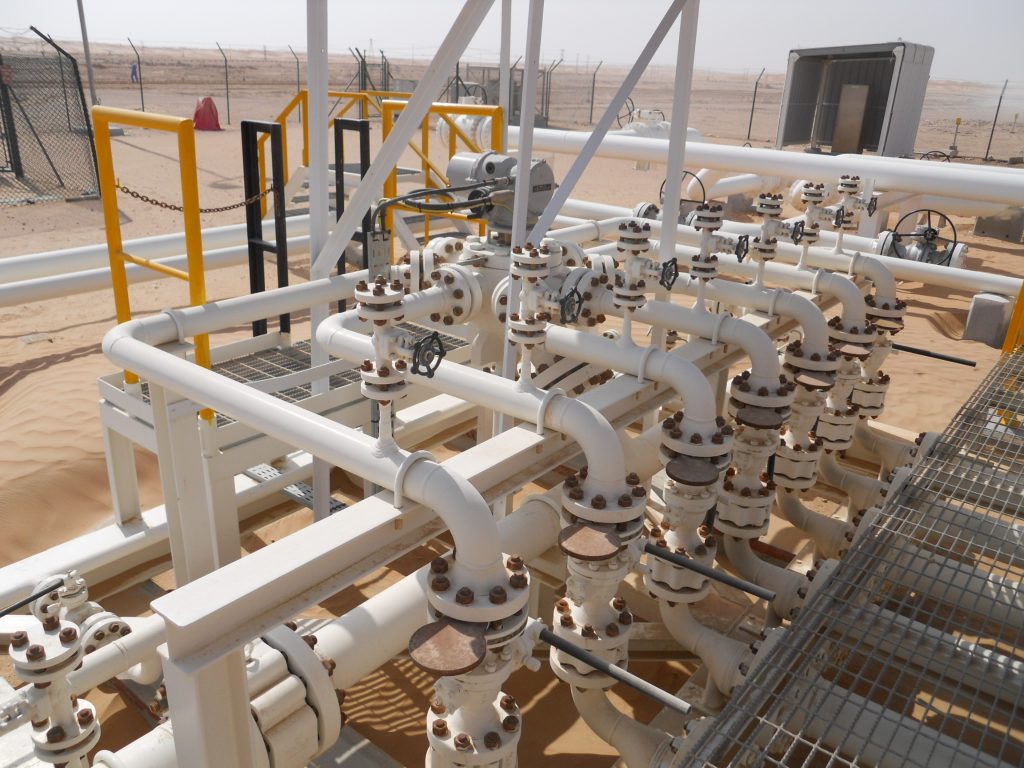
Working Principle of a Multiport Selector Valve
A multiport selector valve (MSV) works by diverting the flow of a fluid or gas from one inlet port to one or more outlet ports. The valve typically consists of a cylindrical body with multiple ports and a rotating plug or spool that selectively connects the inlet and outlet ports.
The plug or spool has multiple channels or passages that can be selectively aligned with the ports in the valve body. By rotating the plug or spool, the operator can control the flow direction and the destination of the fluid or gas.
When the plug or spool is rotated, it aligns with the selected outlet port, allowing the fluid or gas to flow through the valve and into the desired destination. The other outlet ports are closed off, preventing any flow in those directions.
MSVs can be operated manually or using automated control systems, such as pneumatic or electric actuators. In manual operation, the operator rotates the plug or spool using a handle or lever, while in automated operation, the actuator rotates the plug or spool in response to a signal from a controller.
The design and operation of MSVs may vary depending on the application and the specific requirements of the process. However, the basic principle of diverting the flow of a fluid or gas from one inlet port to one or more outlet ports remains the same.
What is an MSV Skid?
An MSV skid is a pre-engineered and pre-fabricated assembly that contains one or more multiport selector valves (MSVs) along with associated piping, instrumentation, and control systems. The skid is designed to be installed and connected to a pipeline or process system to provide efficient and reliable flow control.
MSV skids are commonly used in the oil and gas industry, particularly in production facilities and pipeline systems, to provide a compact and standardized solution for flow control. The skid can be designed to accommodate multiple MSVs, each with different configurations and sizes, depending on the specific requirements of the process.
The skid typically includes all the necessary components for MSV operation, including the valve, actuator, positioner, pressure gauges, and control panel. The skid may also include additional components, such as filters, regulators, and relief valves, to ensure proper operation and protection of the MSV and the downstream equipment.
MSV skids are designed to be modular and easy to install, reducing the installation time and cost compared to traditional field fabrication. The skids can be customized to meet the specific requirements of the process and can be easily integrated with other equipment and control systems.
Overall, MSV skids provide an efficient and cost-effective solution for flow control in the oil and gas industry, allowing for reliable and precise control of fluid and gas flow in production facilities and pipeline systems.
Advantages of MSV Skids
MSV skids offer several advantages in the oil and gas industry, including:
- Standardization: MSV skids are pre-engineered and pre-fabricated, which allows for a standardized solution for flow control. Standardization ensures that the skids are designed, manufactured, and installed consistently, reducing the risk of errors and improving the reliability and efficiency of the system.
- Modular Design: MSV skids are designed to be modular, allowing for easy installation and integration with other equipment and control systems. The modular design also enables the skids to be customized to meet specific requirements and easily modified or expanded as the process needs change.
- Reduced Installation Time and Cost: MSV skids are pre-fabricated and tested in a controlled environment, reducing the installation time and cost compared to traditional field fabrication. The skids can be installed quickly and easily, minimizing downtime and improving operational efficiency.
- Improved Quality Control: MSV skids are manufactured and tested in a controlled environment, ensuring consistent quality and reliability of the system. The skids undergo rigorous testing and inspection to ensure proper operation and compliance with industry standards and regulations.
- Precise Flow Control: MSV skids provide precise and reliable flow control, allowing for accurate measurement and optimization of fluid and gas flow in production facilities and pipeline systems. The skids can be designed to accommodate multiple MSVs, each with different configurations and sizes, providing flexible and precise control of the flow.
Overall, MSV skids offer a cost-effective, reliable, and efficient solution for flow control in the oil and gas industry, allowing for precise and flexible control of fluid and gas flow in production facilities and pipeline systems.
Disadvantages of Multiport Selector Valves
While MSV skids offer many advantages for flow control in the oil and gas industry, there are also some potential disadvantages to consider:
- Size Limitations: MSV skids are typically designed for smaller to mid-size pipelines and processes. For larger pipelines or processes, multiple MSV skids may be required, which can increase the complexity and cost of the system.
- Maintenance: MSV skids require regular maintenance and inspection to ensure proper operation and prevent downtime. Maintenance can be more complex than traditional manual valves and may require specialized training or equipment.
- Customization: While MSV skids can be customized to meet specific process requirements, the cost and complexity of customization can increase significantly. Customization may also affect the standardization and modularity of the skid, reducing some of the advantages mentioned earlier.
- Cost: MSV skids can be more expensive than traditional manual valves, especially for smaller pipelines or processes. The cost may be justified by improved efficiency, reduced installation time, and increased reliability, but it is important to consider the overall cost-benefit analysis for each specific application.
Overall, the disadvantages of MSV skids are relatively minor compared to the benefits they can provide in terms of efficiency, reliability, and control. However, it is important to carefully evaluate the specific requirements of the process and consider the advantages and disadvantages of MSV skids in comparison to other flow control solutions.
MSV Skid Manufacturers
There are several companies that manufacture MSV skids for the oil and gas industry. Some of the renowned MSV skid manufacturers include:
- Cameron
- FMC Technologies
- Emerson
- Schlumberger
- GE Oil and Gas
- ABB
- Yokogawa
- Siemens
- Honeywell
- TechnipFMC
These companies have a strong reputation in the industry for providing high-quality MSV skids and related equipment and services. However, it is important to evaluate the specific requirements of the process and compare the capabilities and pricing of each manufacturer before making a decision.
